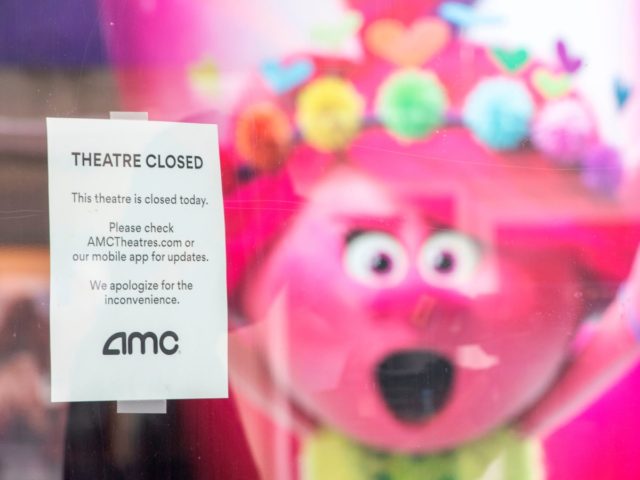AMC Theaters and Universal Studios just agreed to shorten the theatrical window from around 90 days to just 17 days.
Massive. Massive. Massive.
Movie theaters could not hold out forever. Eventually the reality was going to force an end to the 70-to-90 day window. The coronavirus merely accelerated the reckoning.
So here’s what happened…
For right now, this is a deal exclusively between AMC, America’s biggest movie theater chain, and Universal, one of America’s biggest movie studios. The deal allows Universal to – for example – release its upcoming Fast and Furious 9, or F9, in movie theaters for 17 days (which is three weekends) and then, while the theatrical advertising is still hot, release it to home viewers by way of video-on-demand (VOD).
This does not mean you will see F9 DVDs on Walmart shelves or in your Netflix queue on day 18. For right now, the AMC/Universal deal only allows the studio to release its theatrical features on premium video-on-demand (PVOD), which means you are paying $20 for a 48 hour rental and will still have to wait the 70 to 90 days to own or rent the movie at the price points you’re currently used to.
Nevertheless, this is a big capitulation on AMC’s part. When Universal attempted to do something similar with director Brett Ratner’s Tower Heist in 2011, the studio was forced to back down after theater owners threatened to never exhibit any of their movies ever again.
So what changed?
Well, obviously the coronavirus is a factor. Movie theaters have been closed for four months and AMC is seriously concerned with bankruptcy. Universal also holds trump cards in the form of some huge movies coming up, including F9, the new James Bond movie, and the next Jurassic Park sequel.
AMC needs those titles and likely blinked when Universal said it might like to try and see how they would perform on PVOD, especially during a pandemic when people are starved for a Big Movie, especially after Universal’s Trolls World Tour skipped its theatrical release and likely did better on PVOD (a reported $100 million) than it would have in theaters.
Another factor, though, and I could be wrong because I don’t see anyone else talking about this, is competition from streaming services like Netflix, Apple, Amazon, and Disney+.
Streamers are desperate for new content, a steady supply of new content that will keep the customers paying those monthly fees. Streamers are also swimming in cash. Two months ago, Apple paid an incredible $70 million for the Tom Hanks WWII thriller Greyhound. A streaming service paid $70 million for a movie!
The result, of course, is that movie theaters lost all the traffic and concession revenue that comes with a new Tom Hanks movie. Sony spent $50 million to make Greyhound, incurred no marketing costs, sold it for $70 million… You do the math.
What’s more, with Disney+ now online, what happens if the Mouse House decides the next Avengers: Endgame or Star Wars chapter should skip theaters and play exclusively on its streaming service? Imagine how many new subscribers that would attract. If I owned a chain of movie theaters that’s what would be keeping me up nights.
These days, marketing a movie for theatrical release is as big of a gamble as producing the movie. The cost is virtually the same, so why not release the next Martin Scorsese or Spike Lee movie on Netflix (which has already happened) instead of theaters? And now theaters are losing all the revenue and popcorn money that comes with a new Martin Scorsese or Spike Lee movie.
The incentives for studios to bypass theaters continue to pile up.
What happens next, how far this goes, will be up to the customers – to you and I.
With our 75-inch screens and 7.1 surroundsound, we might just decide to wait those 17 days, pay the $20 rental, pop our own popcorn, and enjoy the movie at home. It’s cheaper, there’s no virus, and there are no strangers talking all around us.
Or, after the virus passes, we might flock back to the theaters, back to normalcy, back to the communal experience.
Either way, AMC blinked, and things will never be the same.

COMMENTS
Please let us know if you're having issues with commenting.